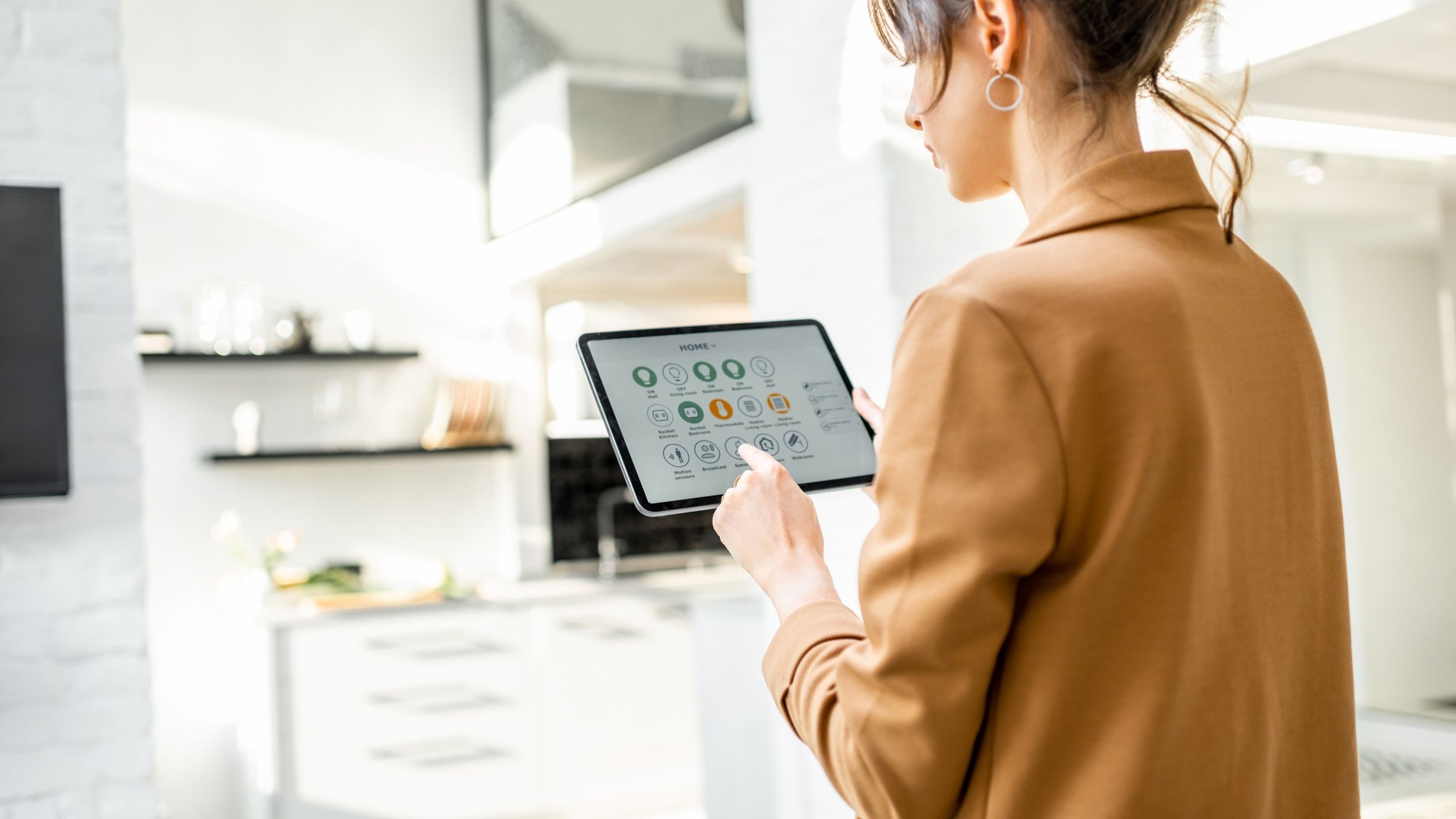10 Pros and Cons of Smart Technology
Are you interested in investing in smart home technology? Smart tech is a great way to increase the comfort and convenience of your home. It can also help you save time and energy, be more secure, and even add value to your home.
The following are the benefits of smart tech in your home:
Discount on homeowner’s insurance
One significant benefit of smart home security is that it can result in discounts on homeowner's insurance. Some insurance companies offer discounts on policies for homeowners who invest in smart home security devices. These devices can help protect your home and belongings, and proactive homeowners who take steps to secure their homes can enjoy lower insurance premiums.
Increase comfort and convenience
Smart home technology also increases comfort and convenience by automating processes and making your life easier. You can control temperature, lights, security, and other home features with a button or voice command. Home automation systems can use geo-fencing to detect when residents are close to home and automatically turn on lights, adjust the temperature, and unlock the front door. This provides a seamless experience for homeowners, eliminating the need to adjust settings manually upon arrival.
It is essential to check with your insurer before making any changes to your home security arrangements, as they may have specific requirements regarding the type of system you can install.
Time and energy saving
Innovative technology saves you time and energy in different ways. You can control devices with a single touch or voice command, so you don't have to spend time figuring out buttons or searching through menus. You can also preset scenes so that your home is ready for bedtime, waking up, or entertaining guests automatically. For example, you can dim the lights and close the blinds at night, turn on the music and set the thermostat to a comfortable temperature before leaving for work in the morning, or have all the lights turned off and shades closed when you go on vacation.
If you’re looking to boost your home’s eco-friendliness, smart technology can be a great ally. Smart home devices that adapt to your needs allow you to use energy only when necessary, giving you more control over consumption. Pairing these smart solutions with a renewable energy provider can further enhance your energy efficiency. Before switching to a new energy supplier, take the time to evaluate their environmental impact. Research customer feedback, like reading CleanChoice Energy reviews, to ensure you make an informed choice that aligns with your sustainability goals.
Suitable for those with mobility issues
Smart home technology is also suitable for those with mobility issues. It is built to meet the needs of people who want to live independently but need assistance with things like turning lights off and on or adjusting the thermostat. Smart doorbells allow a person to speak with the visitor without leaving the couch, and smart door locks will unlock the front door with the touch of a button. It can be a real benefit to someone's quality of life and helps them maintain their independence while providing extra safety and security.
Increase your home value
Smart technology can help build equity in your home, and you may find that the value of your home has increased because of its unique features and improvements, such as a whole-house automation system like Control4. However, the increase in value of your home is on a case-by-case basis, and DIY devices may not increase the value but can facilitate a faster sale.
The influence of smart homes on the real estate industry is rapidly progressing, with numerous new home builders integrating smart home packages into their services. Additionally, the adoption of smart property technology is expanding to other sectors within the real estate domain, such as multifamily. By leveraging enterprise-level platforms like PointCentral, property managers can exercise control over devices within their units, thereby enhancing operational efficiency and resident satisfaction. The pervasiveness of smart home technology is now becoming an expectation even within the rental market, making homes equipped with smart devices an appealing characteristic when these renters become first-time homebuyers.
The following are the drawbacks of smart technology in homes:
Significant Installation Costs
Integrating a whole-house automation system into your property can be a substantial financial investment, with costs ranging from several thousand to tens of thousands of dollars. However, it is important to note that this type of advanced technology comes with a wide range of features and capabilities that can significantly improve your living experience. Despite its many advantages, the cost of installing expensive whole-house automation systems is often a barrier for many homeowners who may not have the financial means to afford it.
Technology can Fail
When it comes to smart home technology, there is always a risk that a device may stop working for unknown reasons. This is particularly concerning when it pertains to the operation of your home. Installing devices from reputable companies is crucial to ensure that you are protected from bad technology. Doing your research ahead of time can save you from the headache of dealing with faulty devices.
One additional risk that comes along with using smart home technology is that devices can become outdated and no longer supported. This means that they may not receive important security updates or feature enhancements, leaving them vulnerable to security breaches or making them incompatible with newer devices. As technology continues to advance at a rapid pace, it's important to consider the longevity of the devices you purchase and to keep in mind that older devices may eventually become obsolete. It's recommended to choose devices from reputable companies with a track record of supporting their products for several years.
Reliable Internet Connection is Crucial
If you live in some remote areas, you may face another issue when it comes to installing innovative home technology - the lack of internet connection altogether. Unfortunately, in some locations, the infrastructure may not be in place to support a strong, reliable internet connection, which could make building a smart home challenging. It's important to research the availability of internet service in your area before investing in smart home technology.
Smart Home Tech is Not Suitable for All Houses
While smart home devices have become more prevalent and accessible in recent years, they may not be suitable for all homes. One potential issue is the compatibility of smart devices with older systems in the home, such as HVAC (heating, ventilation, and air conditioning) systems. If the HVAC system is outdated and incompatible with the smart thermostat, for example, the benefits of the smart device may not be fully realized. In some cases, it may even cause problems or malfunctions in the existing system, resulting in additional costs and frustration for homeowners. It is essential to consider the compatibility of smart devices with existing systems before purchasing and installing them in your home.
Compatibility Problems Between Devices
Having numerous devices connected to the internet in your home may result in incompatibility issues. To get the most out of your smart home, it is advisable to choose devices that belong to the same ecosystem. If you have devices from different brands, you may end up with multiple apps to use, leading to confusion and frustration. Conduct thorough research on the devices beforehand, such as comparing Google Home and Amazon Alexa, and determine which one best meets your needs. Opting for devices that belong to the same ecosystem will unlock great automation opportunities.
While some initial costs may be involved in installing smart home technology, the long-term savings, and increased security make it well worth the investment. It's essential to do your research and choose devices from reputable companies to avoid bad tech, ensure compatibility between devices, and confirm the suitability of the technology for your home.

